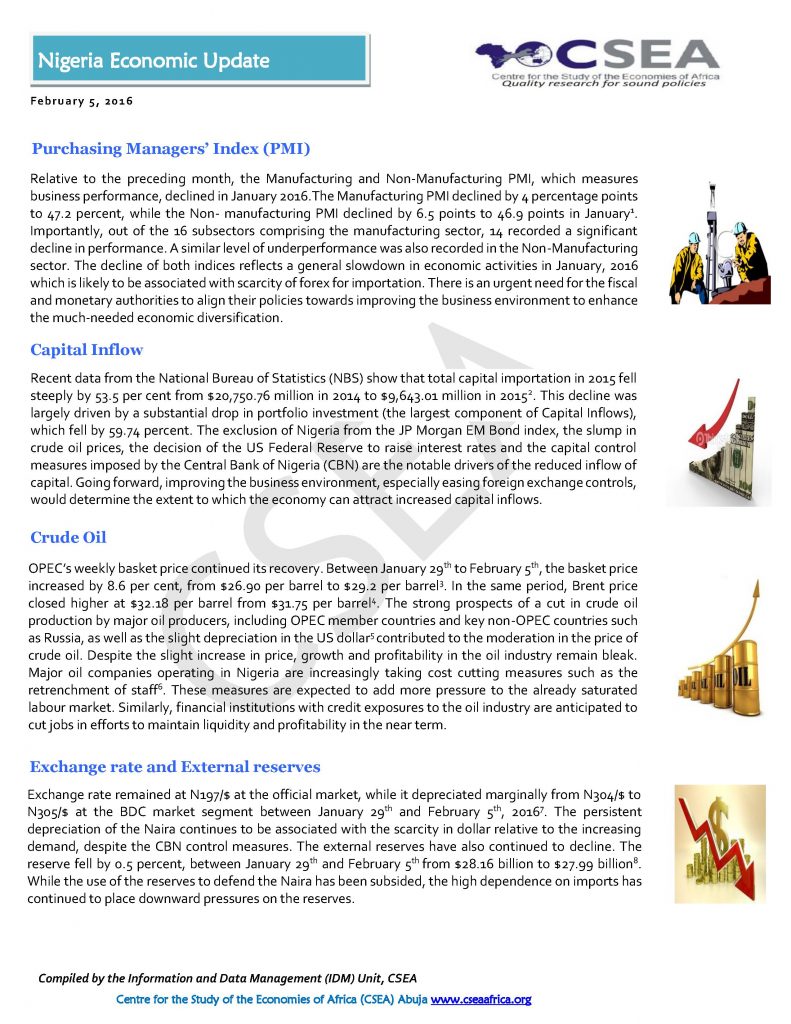Macroeconomic Report & Economic Updates

February 16, 2016
Nigeria Economic Update (Issue 8)
Recent
data from the National Bureau of Statistics (NBS) show that total capital
importation in 2015 fell steeply by 53.5 per cent from $20,750.76 million in
2014 to $9,643.01 million in 20152. This decline was largely driven
by a substantial drop in portfolio investment (the largest component of Capital
Inflows), which fell by 59.74 percent. The exclusion of Nigeria from the JP Morgan
EM Bond index, the slump in crude oil prices, the decision of the US Federal
Reserve to raise interest rates and the capital control measures imposed by the
Central Bank of Nigeria (CBN) are the notable drivers of the reduced inflow of
capital. Going forward, improving the business environment, especially easing
foreign exchange controls, would determine the extent to which the economy can
attract increased capital inflows.
Related
Nigeria Economic Update (Issue 35)
Nigeria's Real Gross Domestic Product (GDP) increased at an annual rate of 0.55 percent in 2017Q21, compared to the -0.91 percent (revised) in 2017Q1 indicating the first quarterly positive growth rate since 2016Q1 and an evidenced exit from five quarters of economic recession. The acceleration in real GDP in 2017Q2 reflects the significant increase in oil sector GDP from -11.64 percent in 2017Q1, to 1.64 percent in 2017Q2 a 13.3 percentage points Quarter-on-Quarter increase. However, Non-oil GDP moderated by 0.3 percentage points to 0.45 percent. Despite the recent favorable economic performance, growth prospect remains fragile.
